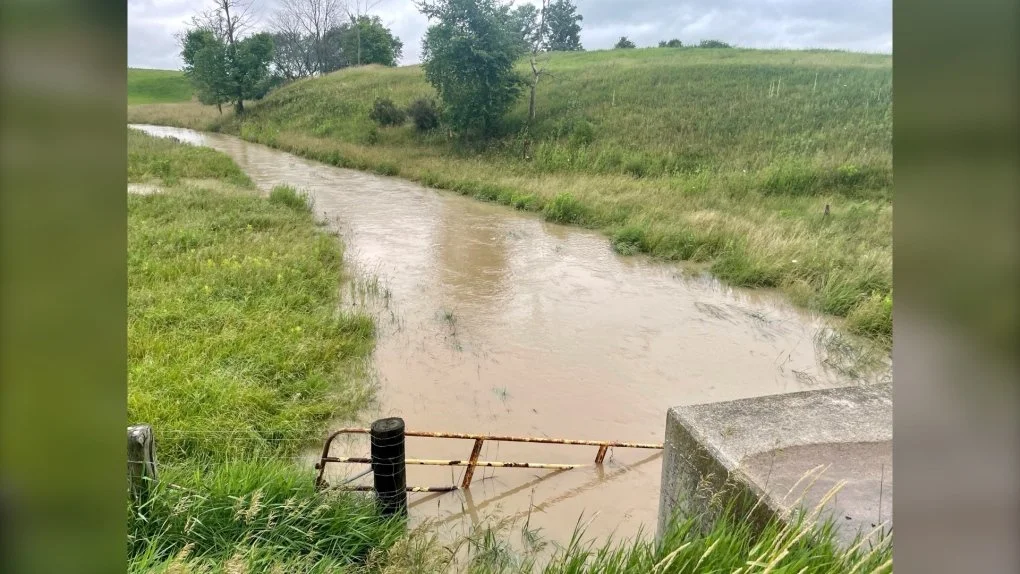Rivers, creeks, and streams are beginning to turn amidst the pressure of flood waters. While the City of London escaped heavy rain Wednesday evening through Thursday morning, some areas north and west of the city were not as fortunate. The Upper Thames River Conservation Authority (UTRCA) issued a flood alert. It follows several days of storms that have left the earth saturated.
As flood waters recede, northwestern Ontario communities turn attention to cleanup, mitigation
As flood waters in the area recede, the northwestern Ontario municipality of Sioux Lookout is now shifting its focus to cleaning up, and preparing for the future. "Some people have dumpsters parked in front of their homes, and they're ripping out insulation and drywall for the two or three feet that were soaked in water," explained Sioux Lookout Mayor Doug Lawrance. "Along the shore, there's all manner of debris," he said. "From tires that might have been incorporated into the lakeside retaining walls to wood that comes from docks to flagpoles, Styrofoam, life jackets."
Trees come down for flood mitigation project in Sydney's Baille Ard Trail
Cape Breton Regional Municipality is starting to take down some trees in Sydney's only urban forest as part of a flood mitigation project, but not everyone is convinced it will work. Contractors started knocking down trees on Monday, using a giant mechanical mulcher to clear a service road into the 28-hectare Baille Ard Trail system. Even though John Duffy lives in the flood zone created by the Wash Brook that runs through the forest, he said he is "disappointed and heartbroken. Anytime we lose any natural forestation, I think this is a terrible thing."
Entire city of Merritt, B.C., ordered to evacuate after flooding of wastewater treatment plant
The entire city of Merritt, population 7,000, is under an evacuation order after flooding caused the complete failure of the municipality's wastewater treatment plant leading to what city officials are calling an "immediate danger to public health and safety." "Continued habitation of the community without sanitary services presents risk of mass sewage back-up and personal health risk," reads the order issued by the city at 10:05 a.m. PT Monday. "The wastewater treatment plant is inundated and non-operational and will be for an indefinite period of time," said the order, which asked residents to try to make plans to stay with friends or family outside the community, which is located in B.C.'s southern Interior, around 200 kilometres northeast of Vancouver.
Some Marsh Lake property owners clear out as flood waters rise
Some property owners along South McClintock Road in Yukon have cleared out as Marsh Lake continues to rise. "It's up fairly high and, you know, it's a west wind so the waves pound those sandbags," said John Small, a Whitehorse resident who owns a recreational property on South McClintock Road. Small and some of his neighbours say they were told by emergency officials to vacate their Marsh Lake properties on Sunday.
State of emergency declared in Fort Good Hope as flood waters rise
A state of emergency has been declared in Fort Good Hope, N.W.T., where flood waters neared the 17-metre mark Tuesday evening, according to Arthur Tobac, the community's public information officer. Tobac, who also sits on the community's council, said the declaration was made around 10:10 a.m. There are about 14 homes in the lowest-lying part of the community, which emergency management officials refer to as "zone one." Most residents in the area had already left when the siren sounded at 4:30 a.m. Roger Plouffe, the local emergency management officer, said two remaining people vacated their homes overnight. As of Tuesday evening, Tobac said people living in "zone two" also started to leave.







